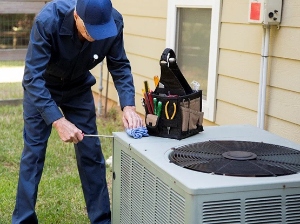What We Offer
Fixed Pricing
All of our quotes are fixed price. There are no hidden fees or surprises. We guarantee it.

What We Offer
Fixable payment options
With services available to suit every budget, we offer a variety of different payment methods. We can find the payment methods that best meet your needs – cash, credit card (Visa, Mastercard and Discover).

What We Offer
HVAC servicing and pricing analysis
The expert team at B. Tucker will help you choose the most cost-effective heating & cooling solution that meets your needs and budget requirements.

What We Offer
Increased efficiency and comfort
A well maintained HVAC system works optimally and efficiently, keeping costs down and comfort levels optimal. A dirty furnace or cooling unit can result in a reduced capacity to generate heating or cooling, resulting in more stress and wear on the unit. A higher energy consumption rate for your home or office and leaves some rooms without the right level of heating or cooling.






















